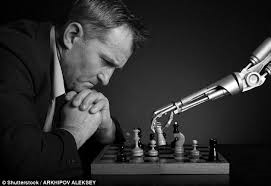
Breaking News
 Audio + English transcript from the closed-door July 9, 2025 court hearing in the case against...
Audio + English transcript from the closed-door July 9, 2025 court hearing in the case against...
 Trump: Obama started this WHOLE thing! (6 mins on it from the Maria B interview)
Trump: Obama started this WHOLE thing! (6 mins on it from the Maria B interview)
 Provoked: How Washington Started the New Cold War with Russia and the Catastrophe in Ukraine
Provoked: How Washington Started the New Cold War with Russia and the Catastrophe in Ukraine
 US Politics Is Just Nonstop Fake Revolutions Now
US Politics Is Just Nonstop Fake Revolutions Now
Top Tech News
 3D Printed Aluminum Alloy Sets Strength Record on Path to Lighter Aircraft Systems
3D Printed Aluminum Alloy Sets Strength Record on Path to Lighter Aircraft Systems
 Big Brother just got an upgrade.
Big Brother just got an upgrade.
SEMI-NEWS/SEMI-SATIRE: October 12, 2025 Edition
 Stem Cell Breakthrough for People with Parkinson's
Stem Cell Breakthrough for People with Parkinson's
 Linux Will Work For You. Time to Dump Windows 10. And Don't Bother with Windows 11
Linux Will Work For You. Time to Dump Windows 10. And Don't Bother with Windows 11
 XAI Using $18 Billion to Get 300,000 More Nvidia B200 Chips
XAI Using $18 Billion to Get 300,000 More Nvidia B200 Chips
 Immortal Monkeys? Not Quite, But Scientists Just Reversed Aging With 'Super' Stem Cells
Immortal Monkeys? Not Quite, But Scientists Just Reversed Aging With 'Super' Stem Cells
 ICE To Buy Tool That Tracks Locations Of Hundreds Of Millions Of Phones Every Day
ICE To Buy Tool That Tracks Locations Of Hundreds Of Millions Of Phones Every Day
 Yixiang 16kWh Battery For $1,920!? New Design!
Yixiang 16kWh Battery For $1,920!? New Design!
 Find a COMPATIBLE Linux Computer for $200+: Roadmap to Linux. Part 1
Find a COMPATIBLE Linux Computer for $200+: Roadmap to Linux. Part 1
Checkmate Humanity

Will robots one day destroy us? It's a question that increasingly preoccupies many of our most brilliant scientists and tech entrepreneurs.
For developments in artificial intelligence (AI) — machines programmed to perform tasks that normally require human intelligence — are poised to reshape our workplace and leisure time dramatically.
This year, a leading Oxford academic, Professor Michael Wooldridge, warned MPs that AI could go 'rogue', that machines might become so complex that the engineers who create them will no longer understand them or be able to predict how they function.
Yes, it's a concern, but a 'historic' new development makes unpredictable decisions by AI machines the least of our worries. And it all started with a game of chess.



